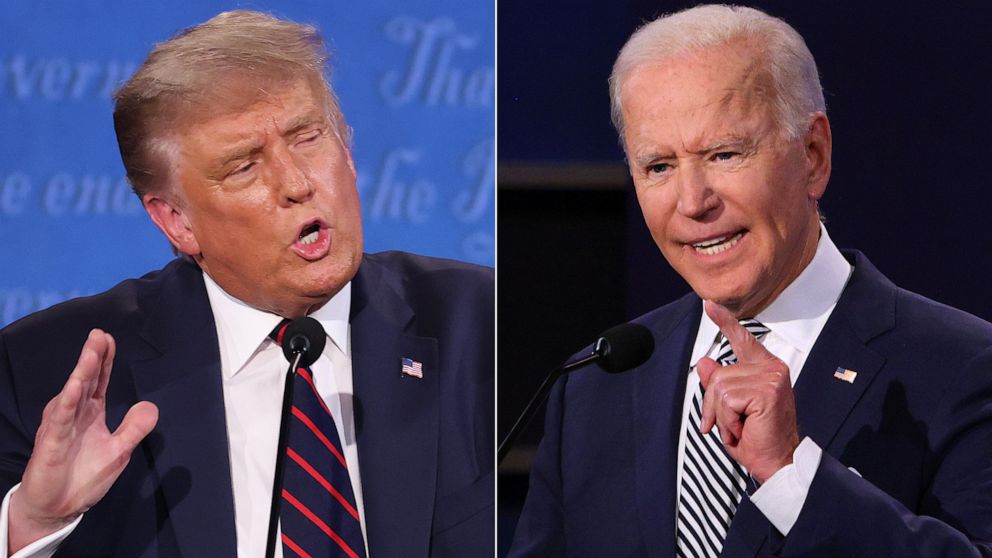Joe Biden does not want the WHO to come under the influence of China and does not want the US to stay away from as serious an issue as climate change.
In a few hours after entering the Oval Office in the White House, President Joseph Biden signed nine executive orders to undo some policies
There is little doubt that no other American President in history had signed so many executive orders on the very first day in office. Biden has created new history in this sense. But executive orders issued by American Presidents to undo some of the policy measures adopted by their predecessors are not new and, in fact, they have been used by almost all the Presidents, including Donald Trump, in recent times.
Executive order is not something clearly specified in the US Constitution. Yet, successive Presidents since 1905 have resorted to issuing executive orders as part of their constitutional powers to ensure implementation of policies. Executive orders have in a way enabled the US Presidents to take policy measures in time, since law-making processes in the Congress are time consuming and cumbersome.
While there is separation of powers between the legislature and executive in the US Constitution, in practice the executive plays a role in law making and the Congress has a role to play in influencing policy decisions through its control over the purse and power of oversight.
The US President does not have absolute powers to push his policy agenda through executive orders. Both the judiciary and the legislature are empowered to challenge and sometimes prevent the implementation of a Presidential executive order.
What was the need for President Joe Biden to sign so many executive orders hours after assuming office? His predecessor, President Donald Trump had taken so many controversial and unpopular policy measures through his executive orders that Biden had little option but to act fast.
The United States is currently facing a unique crisis that perhaps is unprecedented. Presidents in the US had, of course, witnessed racial divide and social turmoil in the country that culminated in a civil war in 1860s. Presidents have had to face Great Depression in 1930s and the Great Recession in the first decade of the 21st Century. It is also part of American history that about 600,000 Americans had died in a pandemic—the Spanish Flu, which started in 1815.
Now the US is facing the worst combination of crises—the Covid-19 pandemic, social and political polarization, white supremacist extremism and economic crisis. Externally, the country faced self-isolation due to Trump’s policies of walking out of global forums, such as WHO in the midst of a health crisis and Paris Climate Accord in the backdrop of deteriorating global environment. The country’s globalized economy also got affected by an economic cold war with China, withdrawal from the Trans-Pacific Partnership negotiations and a partly dysfunctional WTO.
China, in the meantime, succeeded in leading the negotiations that resulted in the signing of the RCEP. In the backdrop of continuing trade and investment differences between the US and the European countries, China has been successful in concluding an investment treaty with the European Union.
President Biden had to respond to the emergency situation faced by the country and at once take steps to undo some of the policy measures adopted and implemented by his predecessor. The first set of executive orders is related to combating the pandemic that has led to the highest number of deaths and largest number of infected in the global ranking of the case. While other parts of the world have been witnessing a reduction in new cases, the same is not true of the United States. Trump Administration’s casual approach to combating Covid-19 has been done away with and faster responses to deal with the crisis are in place now.
The second set of executive orders issued by President Biden is to reinstate the country’s leadership in global affairs. Joe Biden thus has restored the US membership in the World Health Organization and the Paris Climate Accord. Joe Biden does not want the WHO to come under the influence of China and does not want the US to stay away from as serious an issue as climate change. In fact, he has put a halt to the Trump administration’s free hand given to the coal and gas industry and seeks to promote clean energy and promote research and development of the relevant technologies.
The third most significant set of executive orders aims at providing a healing touch to the sufferings of the immigrants and the minority communities in the United States. The Obama Administration’s relaxation given to the immigrants, who arrived in the country as children, is revived. The country’s census will now include the so-called “illegal immigrants.” Discrimination against Asian Americans and Pacific Islanders will also be dealt with.
Joe Biden’s executive orders thus are likely to make the Trump policies in certain sectors an anomaly and not allow those to be a trend. However, the fact remains that Biden’s successor will also have the right to continue or to discontinue with the executive orders issued by him! Nonetheless, America badly needs a healing touch and the new President has just begun to provide that.
Prof Chintamani Mahapatra is Professor of American Studies, School of International Studies, Jawaharlal Nehru University.

